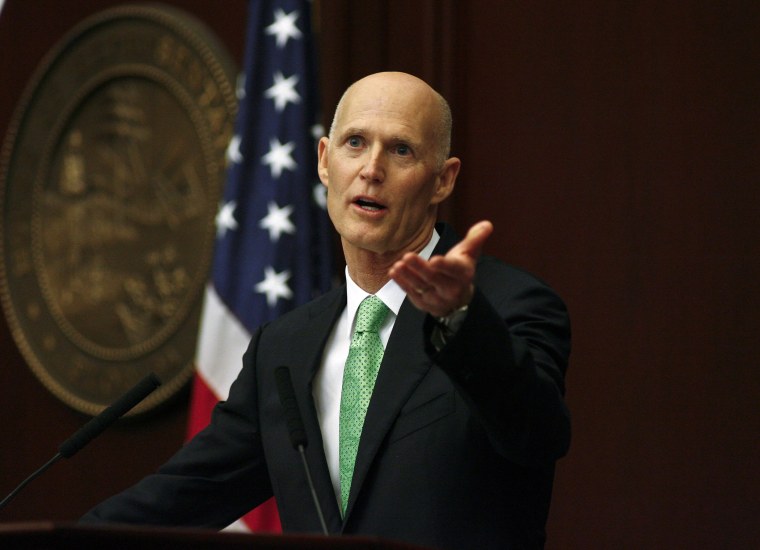It was just two years ago that Florida Gov. Rick Scott (R) made a surprise announcement. In a policy breakthrough, the far-right governor said he'd changed his mind about Medicaid expansion through the Affordable Care Act, and Scott wanted to embrace the policy he'd once rejected.
"I cannot, in good conscience, deny the uninsured access to care," the Republican said in February 2013. Scott added at the time that Medicaid expansion is "a compassionate, common sense step forward."
The governor's "conscience" has apparently shifted. The Miami Herald reported yesterday:
Republican Gov. Rick Scott backed off his support of Medicaid expansion Monday, triggering a political backlash and giving the Florida House ammunition in its ongoing budget battle with the Senate. Scott, who had thrown his support behind expanding Medicaid two years ago, expressed strong doubts about a government proposal to extend federally subsidized health insurance to nearly 800,000 poor Floridians.
For the record, the U.S. Department of Health and Human Services said it has no idea why the governor suddenly doubts the federal funding commitment to the Medicaid program. Nothing has changed since Scott's 2013 breakthrough decision.
I've seen some reports that this represents a "flip-flop" for the far-right Floridian, but that's not quite right.
As a rule, "flip-flop" refers to politicians who take one position, then take the opposite position, usually for the sake of political convenience or expedience. What's far less common is the "flip-flop-flip" -- politicians who take one position, then take the opposite position, then reverse course again, re-embracing the first position.
Consider Rick Scott's trajectory
* 2012: The far-right governor, taking advantage of a Supreme Court ruling, announced he would not accept Medicaid expansion. To justify the position, Scott's office was even caught fudging the truth.
* 2013: The Florida Republican reversed course, accepted basic arithmetic, and concluded that Medicaid expansion was the smart move.
* 2015: Scott reversed course again, ending up where he started.
It's tragic anytime policymakers choose, on purpose, to deny medical care to struggling families, but it's especially problematic in Florida. As longtime readers may recall, the state has an enormous Medicaid-eligible population, and was poised to receive $66 billion in federal funds over the next decade. What's more, Florida already has struggling public hospitals, which will now be in even worse shape.
Nevertheless, the governor's new/old position was celebrated by Florida's Republican-run legislature and assorted anti-healthcare organizations.
